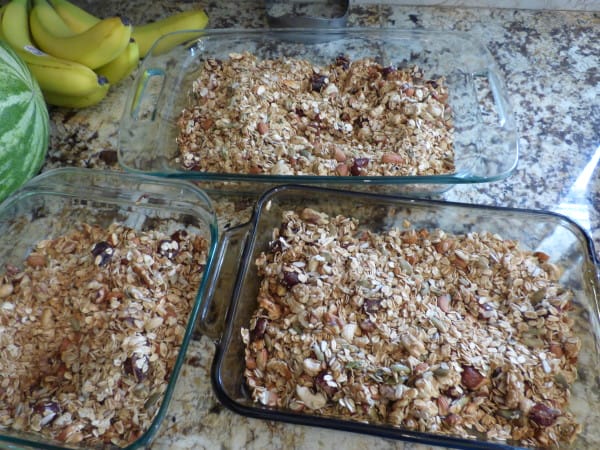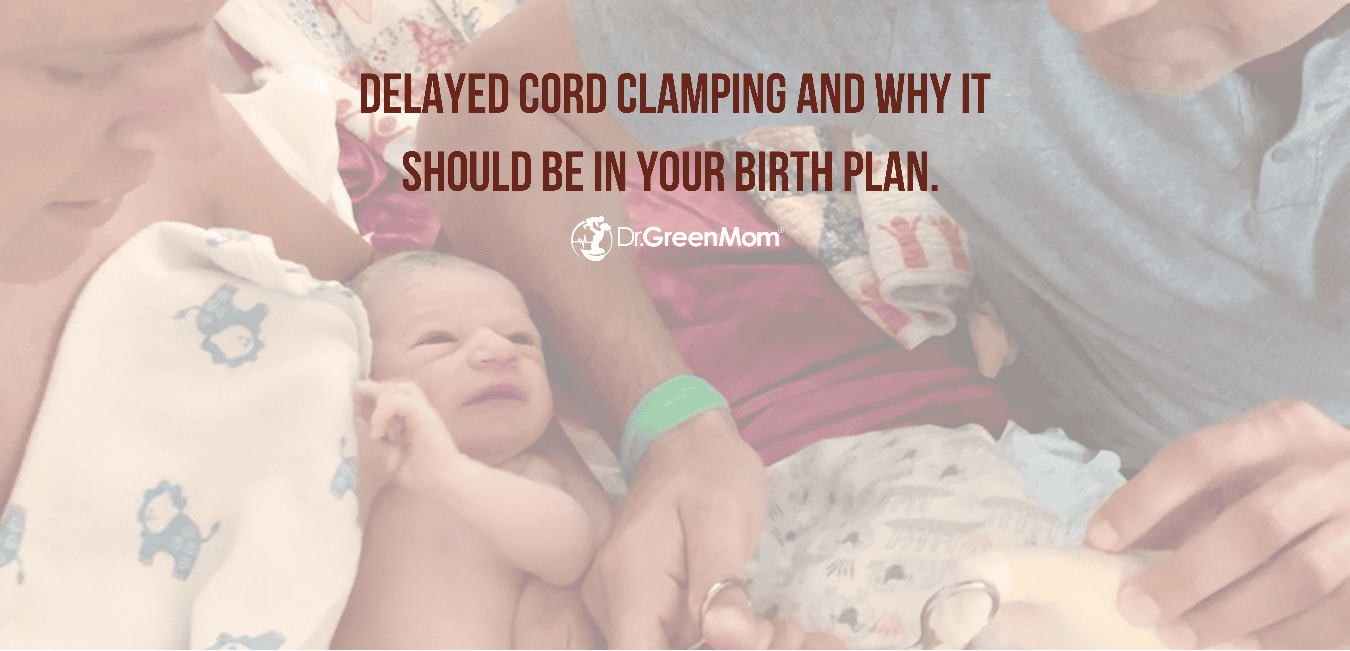If you’ve spent time in mom groups or scrolling social media lately, you may have come across this trend: giving babies a small bite of butter before bed to help them sleep better.
In this article, we’ll take a closer look at this practice — where it comes from, what the science says, whether it’s safe, and whether it may actually help your little one get more restful sleep.
Where Did This Trend Come From?
I wasn’t able to track down the original post that sparked this trend, though I’ve seen various parents and wellness accounts sharing it recently.
That said, the idea of using nourishing fats like butter or ghee to help calm little ones and support sleep does draw on some plausible scientific explanation – let’s take a look:
The Science: Can Fat Help Babies Sleep?
The practice of giving babies butter before bed is definitely rooted more in parental anecdotes than specific scientific studies… But it makes some sense: fat provides long-lasting energy (1), helps stabilize blood sugar (2), and can support the nervous system (3).
There are no clinical trials studying butter before bed in babies, but there is science showing that stable blood sugar and adequate fat intake in infants have been suggested in literature to support healthy sleep (4,5). This is likely because fats provide a slow, steady fuel source that can help keep blood sugar more stable through the night.
Quality butter also contains:
- Butyric acid: a short-chain fatty acid that supports gut and nervous system health (6),
- Fat-soluble vitamins (A, D, E, and K2): play key roles in supporting a healthy nervous system, immune resilience, and bone health (7),
- Saturated fat: essential for brain health and overall infant development (8).
Of course, these benefits come from overall nutrition, not from a single bite. But within the context of sufficient breast milk or formula intake and adequate solids for your baby’s age, this small bedtime practice may offer some benefits.

Is It Safe To Give Babies Butter?
For most babies over 6 months who are already eating solids and tolerating dairy, a small bite of quality butter before bed is not dangerous. In fact, it may be a helpful and enjoyable part of their evening routine.
Here are a few guidelines to keep in mind:
- Wait until after 6 months when your baby is developmentally ready for solids.
- Make sure your baby is already tolerating dairy (such as yogurt or cheese) without signs of allergy or sensitivity.
- Choose high-quality, grass-fed butter when possible. Grass-fed butter provides better levels of fat-soluble vitamins and beneficial fatty acids.
- A small amount (a single bite or thin pat added to a meal) is appropriate. Many babies enjoy butter offered directly on a spoon.
If your baby isn’t yet eating dairy or if there’s a family history of dairy allergy, you’ll want to proceed more cautiously and consult with your healthcare provider.
To learn more about introducing solids to your baby, read this article: All About First Foods For Babies: A Nutrient Focused Approach
Does It Actually Work?
Some parents report that giving butter before bed helps their baby sleep longer or wake less often. While this is anecdotal, it does make sense: for older babies whose sleep may be disrupted by hunger or blood sugar dips, a small bite of fat before bed could provide more stable energy through the night.
But it isn’t a miracle solution. A few other ways to support your baby’s sleep include:
- Creating a consistent bedtime routine to signal to your baby that it’s time for sleep.
- Watching for and addressing discomfort or sleep disruptors such as reflux, food sensitivities, or developmental leaps.
To learn more about sleep in babies and children, read these articles:
- Sleep Essentials For Kids
- 9 Reasons Your Kids Aren’t Sleeping (And How To Help)
- Co-Sleeping 101: Benefits, Risk Factors, & Safety Guidelines
If your baby already has these foundations in place, adding a small butter bite may provide a gentle extra layer of support.

Bottom Line
For babies over 6 months who tolerate dairy well, offering a small bite of quality grass-fed butter before bed is perfectly safe and may even be helpful.
It’s not a magic cure, but if your baby enjoys it and it works for your family, a bite of butter before bed is an option to include in your baby’s bedtime routine.
References:
- Muskiet FAJ. Pathophysiology and Evolutionary Aspects of Dietary Fats and Long-Chain Polyunsaturated Fatty Acids across the Life Cycle. In: Montmayeur JP, le Coutre J, editors. Fat Detection: Taste, Texture, and Post Ingestive Effects. Boca Raton (FL): CRC Press/Taylor & Francis; 2010. Chapter 2. Available from: https://www.ncbi.nlm.nih.gov/books/NBK53557/
- Collier G, McLean A, O’Dea K. Effect of co-ingestion of fat on the metabolic responses to slowly and rapidly absorbed carbohydrates. Diabetologia. 1984 Jan;26(1):50-4. doi: 10.1007/BF00252263. PMID: 6368300.
- Schwartz JH, Young JB, Landsberg L. Effect of dietary fat on sympathetic nervous system activity in the rat. J Clin Invest. 1983 Jul;72(1):361-70. doi: 10.1172/jci110976. PMID: 6874952; PMCID: PMC1129191.
- St-Onge MP, Cherta-Murillo A, Darimont C, Mantantzis K, Martin FP, Owen L. The interrelationship between sleep, diet, and glucose metabolism. Sleep Med Rev. 2023 Jun;69:101788. doi: 10.1016/j.smrv.2023.101788. Epub 2023 Apr 28. PMID: 37156196; PMCID: PMC10247426.
- Schneider, N., Mutungi, G., & Cubero, J. (2018). Diet and nutrients in the modulation of infant sleep: A review of the literature. Nutritional Neuroscience, 21(3), 151–161. https://doi.org/10.1080/1028415X.2016.1258446
- Barman M, Gio-Batta M, Andrieux L, Stråvik M, Saalman R, Fristedt R, Rabe H, Sandin A, Wold AE, Sandberg AS. Short-chain fatty acids (SCFA) in infants’ plasma and corresponding mother’s milk and plasma in relation to subsequent sensitisation and atopic disease. EBioMedicine. 2024 Mar;101:104999. doi: 10.1016/j.ebiom.2024.104999. Epub 2024 Feb 9. PMID: 38340558; PMCID: PMC10869761.
- Andrès E, Lorenzo-Villalba N, Terrade JE, Méndez-Bailon M. Fat-Soluble Vitamins A, D, E, and K: Review of the Literature and Points of Interest for the Clinician. J Clin Med. 2024 Jun 21;13(13):3641. doi: 10.3390/jcm13133641. PMID: 38999209; PMCID: PMC11242131.
- Hardy SC, Kleinman RE. Fat and cholesterol in the diet of infants and young children: implications for growth, development, and long-term health. J Pediatr. 1994 Nov;125(5 Pt 2):S69-77. doi: 10.1016/s0022-3476(06)80739-0. PMID: 7965456.


